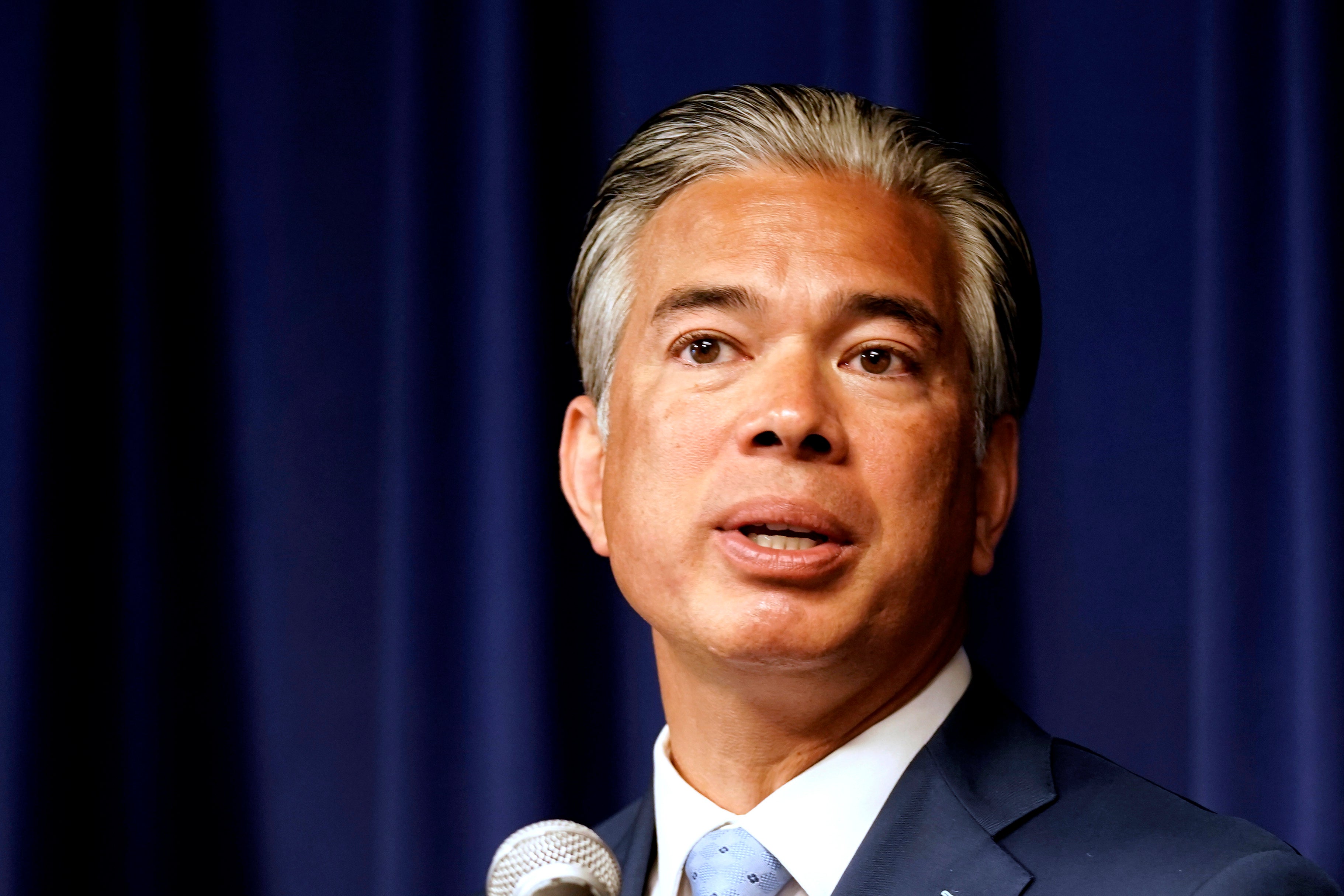California sues Amazon, alleging antitrust law violations
California is suing Amazon, accusing the company of violating the state’s antitrust laws by stifling competition and engaging in practices that push sellers to maintain higher prices on products on other sites

Your support helps us to tell the story
From reproductive rights to climate change to Big Tech, The Independent is on the ground when the story is developing. Whether it's investigating the financials of Elon Musk's pro-Trump PAC or producing our latest documentary, 'The A Word', which shines a light on the American women fighting for reproductive rights, we know how important it is to parse out the facts from the messaging.
At such a critical moment in US history, we need reporters on the ground. Your donation allows us to keep sending journalists to speak to both sides of the story.
The Independent is trusted by Americans across the entire political spectrum. And unlike many other quality news outlets, we choose not to lock Americans out of our reporting and analysis with paywalls. We believe quality journalism should be available to everyone, paid for by those who can afford it.
Your support makes all the difference.California is suing Amazon, accusing the company of violating the state’s antitrust laws by stifling competition and engaging in practices that push sellers to maintain higher prices on products on other sites.
The 84-page lawsuit filed Wednesday in San Francisco Superior Court mirrors another complaint filed last year by the District of Columbia, which was dismissed by a district judge earlier this year and is now going through an appeals process.
But officials in California believe they won’t encounter a similar fate, partly due to information collected during a more than two-year investigation that involved subpoenas and interviews with sellers, Amazon’s competitors as well as current and former employees at the company.
In the lawsuit, California Attorney General Rob Bonta’s office said Amazon used contract provisions to effectively bar sellers from offering lower prices for products on non-Amazon sites, including on the sellers' own websites. That, in turn, harms the ability of other retailers to compete.
The suit maintains merchants that do not comply with the policy could have their products stripped from prominent listings on Amazon and face other sanctions such as suspensions or terminations of their accounts. It alleges Amazon’s policy essentially forces merchants to list higher prices on other sites, helping the retail giant maintain its e-commerce dominance.
Among other things, the California lawsuit seeks to stop Amazon from entering into contracts with sellers that harm price competition. It also seeks a court order to compel Amazon to pay damages to the state for increased prices. State officials did not say how much money they are seeking.
Seattle-based Amazon controls roughly 38% of online sales in the U.S., more than that of Walmart, eBay, Apple, Best Buy and Target combined, according to the research firm Insider Intelligence. About 2 million sellers list their products on Amazon’s third-party marketplace, accounting for 58% of the company’s retail sales.
“Amazon coerces merchants into agreements that keep prices artificially high, knowing full-well that they can’t afford to say no,” Bonta said in a statement.
Amazon has said in the past that sellers set their own prices on the platform. It has also said it has the right to avoid highlighting products that are not priced competitively.
Despite that defense, Amazon’s market power has been a subject of scrutiny from lawmakers and advocacy groups calling for stricter antitrust regulations. Earlier this year, congressional lawmakers urged the Justice Department to investigate if the company collects data on sellers to develop competing products and offer them more prominently on its site. Critics have also lambasted increasing fees imposed on sellers, which makes it more difficult for merchants to enter the market.
Lawmakers on Capitol Hill have been pushing bipartisan legislation aiming to limit Amazon and other Big Tech companies, including Apple, Meta and Google, from favoring their own products and services over rivals. The bill has cleared key committees but has languished in Congress for months amid intense pushback from the companies.
Meanwhile, regulators have also been looking into Amazon’s business practices and deals. In July, the company offered concessions to settle two antitrust investigations in the European Union, including a promise to apply equal treatment to all sellers when ranking product offers on the site’s “buy box,” a coveted spot that makes items more visible to shoppers.
In the U.S., the Federal Trade Commission is investigating Amazon’s $3.9 billion acquisition of the primary health organization One Medical as well as the sign-up and cancellation practices of Amazon Prime, the company’s paid subscription service that offers deals and faster shipping.